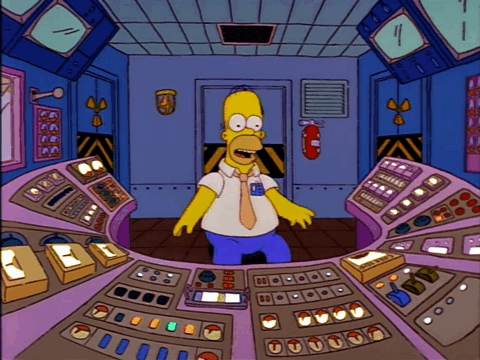noisebloom
theory conspirer
- MBTI
- INTP
If you thought I would be lending some insightful advice... I'm not! I'm asking you.
One of the biggest challenges I've faced in my life has been working with others. Reading this statement myself, my first thought is that someone with this sentiment "doesn't play well with others."
When I think more generally, I can't help but be frustrated by certain tendencies in people:
In my career, it's been a different story. It doesn't matter where I've worked or in what position, it's hard to find people that are simultaneously reliable, motivated, communicative, and accountable. It seems like every 10-30 minutes I'm dealing with or witnessing the consequence of someone who dropped the ball on something, failed to communicate an important piece of information, didn't own up to an issue they caused, or just doesn't care enough to actually put forth an effort.
I'm not really in a position where I can ignore this, unfortunately; the level of accountability I expect to have for the department I have technical oversight for is high (and this is expected of me as well, but to a lesser extent than my own personal expectations). Even if I weren't in this role, I am always the kind of person that does what they can to push things forward, which involves a lot of collaboration and making sure the cogs are turning.
I'm getting pretty jaded by all of this. I've tentatively decided that "the way out" may just be to pursue some sort of position/career that has minimal interaction with others, but do many of these actually exist? I don't seem to really be able to escape people and the complexities of dealing with them. I want to be able to just "let things go", but when I do, I often find that someone suffers the consequences, e.g.
"Bob didn't do his part on the project, so Sam ended up taking the blame."
"Jon hasn't put forth an effort to learn X to make progress, so now we're a week from the deadline and Rob has to work 15 hours a day to get it done."
"Steve keeps sidestepping issues that he causes and pointing fingers, so now everyone else is in trouble."
I can't shake the thought this is really just the reality of how shitty people can be... but where do I find solace? How do you be at peace with this?
One of the biggest challenges I've faced in my life has been working with others. Reading this statement myself, my first thought is that someone with this sentiment "doesn't play well with others."
When I think more generally, I can't help but be frustrated by certain tendencies in people:
- Unreliability
- Lack of communication or failure to articulate
- Unwillingness to learn or independently solve problems
- Lack of accountability
In my career, it's been a different story. It doesn't matter where I've worked or in what position, it's hard to find people that are simultaneously reliable, motivated, communicative, and accountable. It seems like every 10-30 minutes I'm dealing with or witnessing the consequence of someone who dropped the ball on something, failed to communicate an important piece of information, didn't own up to an issue they caused, or just doesn't care enough to actually put forth an effort.
I'm not really in a position where I can ignore this, unfortunately; the level of accountability I expect to have for the department I have technical oversight for is high (and this is expected of me as well, but to a lesser extent than my own personal expectations). Even if I weren't in this role, I am always the kind of person that does what they can to push things forward, which involves a lot of collaboration and making sure the cogs are turning.
I'm getting pretty jaded by all of this. I've tentatively decided that "the way out" may just be to pursue some sort of position/career that has minimal interaction with others, but do many of these actually exist? I don't seem to really be able to escape people and the complexities of dealing with them. I want to be able to just "let things go", but when I do, I often find that someone suffers the consequences, e.g.
"Bob didn't do his part on the project, so Sam ended up taking the blame."
"Jon hasn't put forth an effort to learn X to make progress, so now we're a week from the deadline and Rob has to work 15 hours a day to get it done."
"Steve keeps sidestepping issues that he causes and pointing fingers, so now everyone else is in trouble."
I can't shake the thought this is really just the reality of how shitty people can be... but where do I find solace? How do you be at peace with this?
Last edited:


